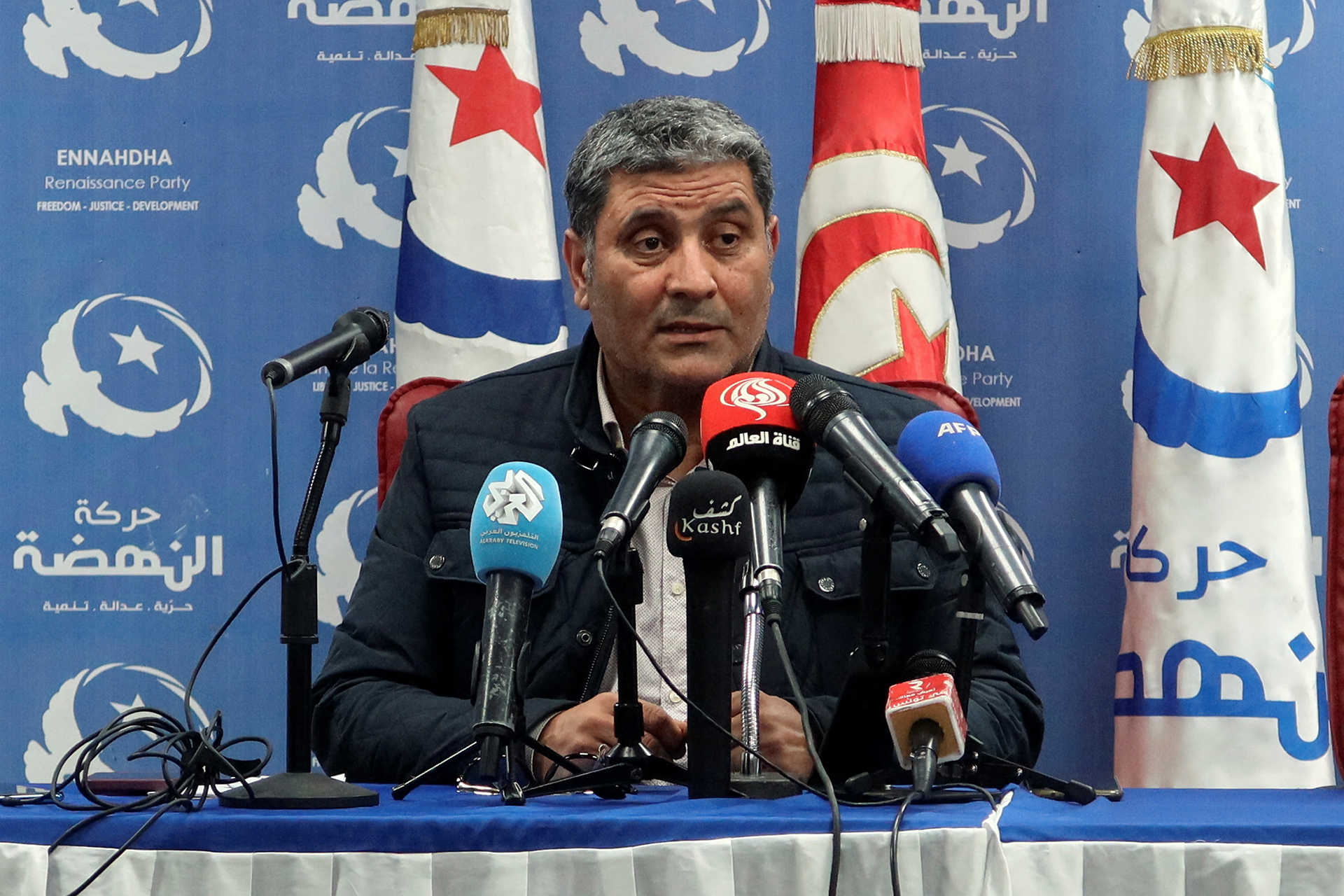The interim president of the Tunisian Ennahda movement, Munther Al-Ounissi, on Thursday called for early elections to find out "the extent of the popularity of President Kais Saied," while the Republican Party called for the release of all "political prisoners" and the cessation of all political prosecutions.
During an interview with the Tunisian radio "IFM" (IFM), Alounissi said that "if the president of the republic (wants) the interest of Tunisia, he cannot govern alone."
He also considered cases of conspiracy against state security "political issues", adding that "the existing regime does not accept that anyone stands in front of it".
The Ennahda movement announced last April that the movement's leader, Munther al-Ounissi, would run its affairs in the absence of its detained president, Rached Ghannouchi.
For its part, the opposition Republican Party called for "the release of all political prisoners and the cessation of all political prosecutions and prosecutions".
This came in remarks by party leader Wissam al-Saghir during a press conference held by the party in the capital Tunis against the backdrop of the 100th anniversary of the arrest of its Secretary-General Essam Chebbi.
"The Republican Party calls on the president to stop all political prosecutions and release prisoners as a first step to launch a participatory national dialogue between all political and participatory forces, national organisations and experts to chart a path to salvation," al-Saghir said.
In turn, Najib Chebbi, head of the "Salvation" Front (opposition) and brother of Essam Chebbi – in his speech during the press conference – "100 days have passed since Chebbi's arrest, and the reason is talks that took place between him and the rest of the detainees in this headquarters (meaning the headquarters of the Republican Party) to discuss how to coordinate actions for the return of legitimacy and democracy to Tunisia."
Vigil
In this context, dozens of Tunisian judges on Thursday carried out a protest in front of the "Palace of Justice" in the capital Tunis, coinciding with the one-year anniversary of the dismissal of 57 judges from their posts.
The head of the Judges Association Anas al-Hammadi – in remarks on the sidelines of the vigil – "The first of June has become a black day in the history of the judiciary."
"49 of the dismissed judges have received rulings suspending the implementation of the exemptions issued against them, which are no longer subject to any form of appeal, and the Ministry of Justice has so far refused to implement these rulings," al-Hammadi said.
"We renew the call for the president of the republic to implement the sentences, and those who have committed crimes among the judges, there are legitimate ways to follow them that guarantee them the right to defense and fair trial," he added.
On the ninth of August 2022, the Administrative Court decided to suspend the implementation of the decision to dismiss 49 of the 57 judges whom President Saied decided to dismiss in June 2022 on charges including "changing the course of cases" and "obstructing investigations" in terrorism files and committing "financial and moral corruption", which the judges deny.
Saeed rejects the dictates of the outside
On the other hand, the Tunisian president stressed the need to find pure Tunisian solutions to the economic and social challenges facing the country.
Saeed renewed – during his meeting with a number of university professors in economic sciences – his country's rejection of any dictation from abroad, as he put it.
He also stressed his refusal to neglect public sector institutions – whether education, health or transportation – because they are human rights and not only citizens' rights, as he described.
Since February, Tunisia has witnessed a campaign of arrests involving politicians, media professionals, activists, judges and businessmen.
Tunisian President Kais Saied accused some of the detainees of conspiring against state security and being behind the crises of distributing goods and rising prices, but the opposition accuses him of using the judiciary to prosecute those who reject exceptional measures that began to be imposed on July 25, 2021, which created a political crisis in the country.

